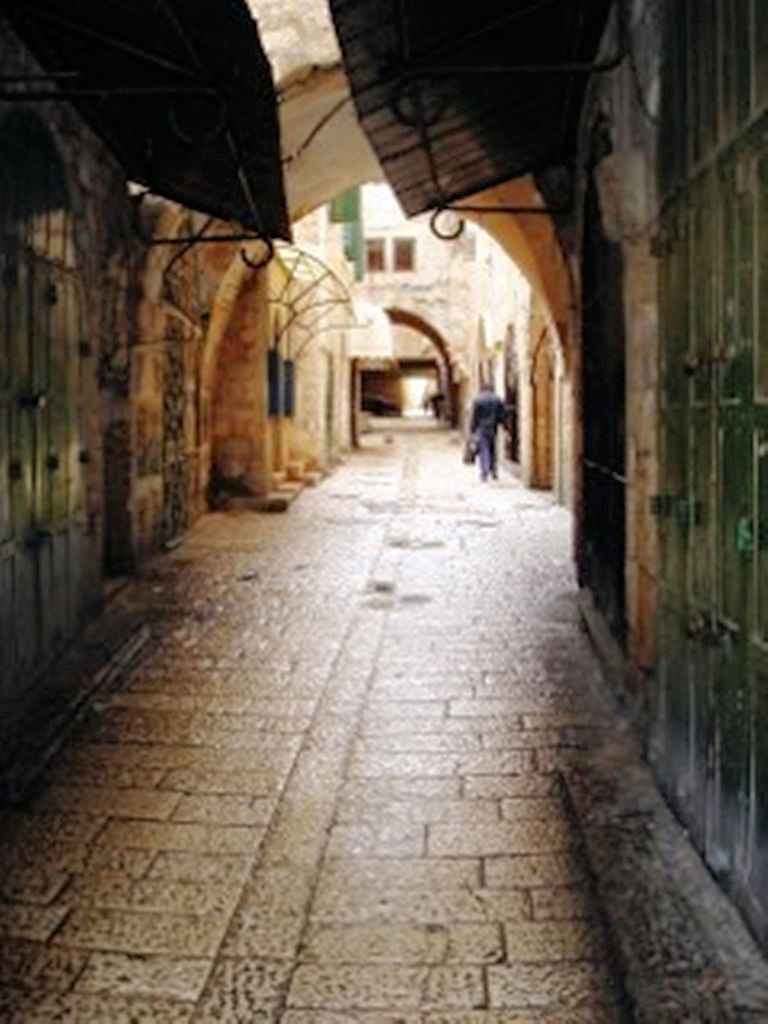In the Old City of Jerusalem, the streets are too narrow for cars. The streets stay narrow so they can squeeze through stone archways. Neighbors who live across the street from each other can look up and see the awnings above their doorways almost touch. Sometimes, a narrow street will become a staircase. The stone steps have probably forgotten most of what they once knew about right angles.

On a rainy day in November, I went for a walk down these ancient streets. The rain revealed shallow gutters in the street, and downspouts that I’d never noticed on sunnier days. Because the stone had been worn smooth by countless footsteps, the ground became slippery. Maybe that’s why the streets were far less crowded than I had come to expect.
As I walked, I paused outside one shop to admire a travel poster in the window. The bold shapes and bright colors drew my eye. It portrayed the Al-Aqsa Mosque, as seen from the Mount of Olives. Because the poster was designed in the 1930’s, it could proclaim, “Visit Palestine” without footnote.
The shopkeeper came to the door. He asked me, “Have you been to Palestine?”
Inspired by all my recent travels, I replied, “Yes! I’ve been to Hebron and Bethlehem, to Ramallah and Cana.”
The merchant regarded me for a moment, then he nodded. He said, “No one is shopping today. Come inside and have tea with me.”
After pouring me a cup of strong tea, my host said, “When I asked if you had been to Palestine, you gave me a good answer. Now, I will tell you a better answer. When you are in Jerusalem, and someone asks you, ‘Have you been to Palestine?’ here is what you should say: ‘But we are in Palestine right now!’”
On my trip through the Holy Land, I often felt a deep need for God’s mercy. There were so many stories of loss. In Ramallah, photos of the dead were plastered onto cement walls. In Hebron, an Israeli soldier raised his weapon toward the crowd. Behind the barrel of his gun, he had the anxious face of a teenager. Everywhere, the security barrier ran like a scar through olive groves and city streets.
Over and over, I felt God’s mercy. There are so many stories I could tell. On that particular day in November, a Palestinian merchant welcomed me into his shop. He was exhausted by a lifetime of conflict. Even so, he invested his time in me. Although I was a stranger, he served me a cup of tea without expecting anything in return. Without rancor or condescension, he offered me a better answer.
This is the traveling mercy I crave the most: to meet those who will teach me that there are other ways of seeing the world.
—Mike Huber
[Photo caption: Old City, Jerusalem, Mike Huber]